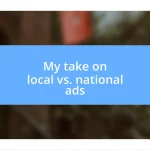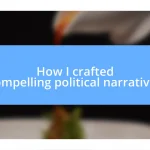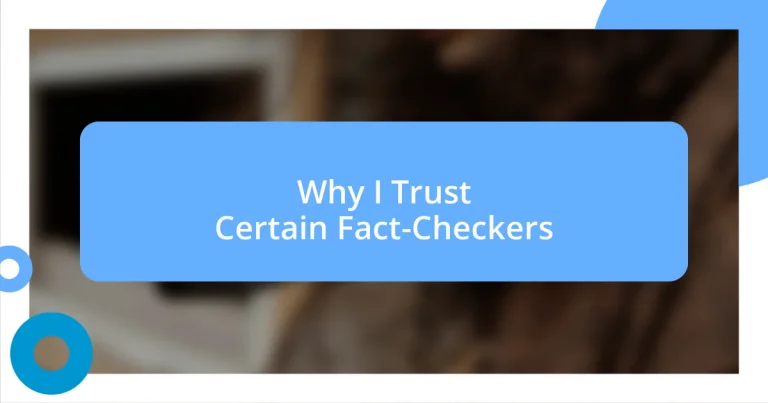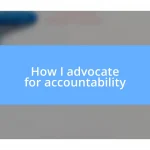Key takeaways:
- Misinformation can have significant consequences, making fact-checkers essential for ensuring trustworthy information.
- Key criteria for evaluating fact-checkers include transparency, expertise, bias awareness, accuracy history, and peer review processes.
- Utilizing reputable organizations like Snopes, FactCheck.org, and PolitiFact, alongside personal fact-checking practices, enhances the ability to discern factual information in today’s digital landscape.
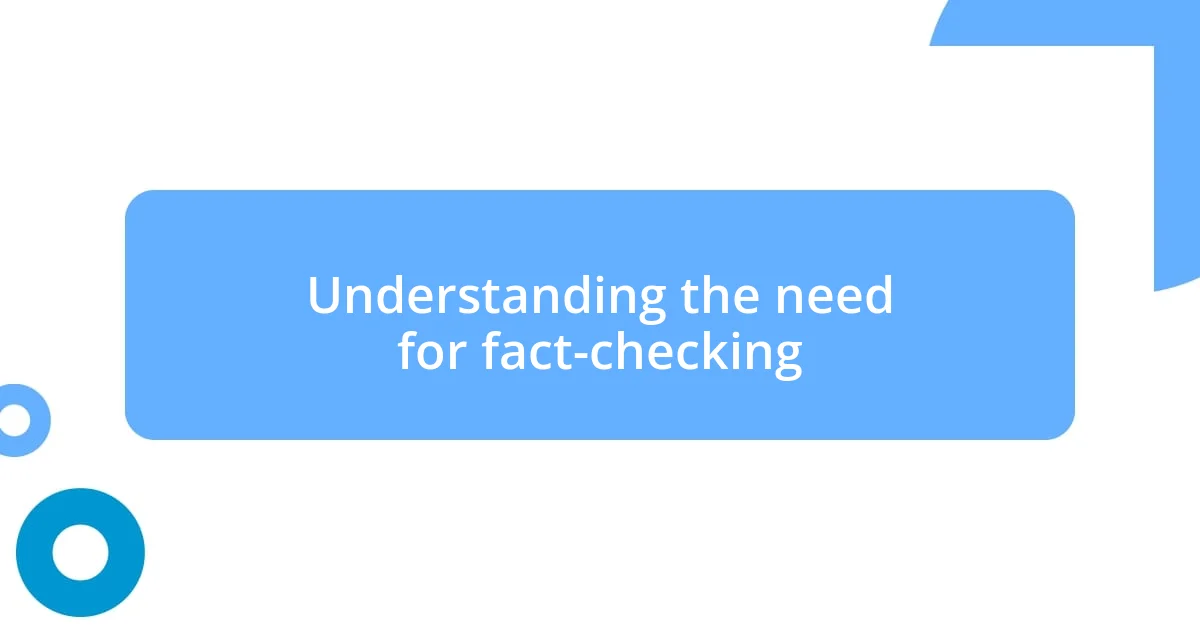
Understanding the need for fact-checking
In today’s fast-paced world, misinformation spreads like wildfire. I remember scrolling through my social media feed one day and stumbling upon a sensational headline. It was shocking but turned out to be completely false. That moment opened my eyes to the crucial role fact-checkers play in keeping us informed.
Think about it: if you come across a story that stirs strong emotions, how do you know if it’s trustworthy? I often find myself asking this when I encounter claims that trigger my views. It’s in those moments that I deeply appreciate the existence of fact-checkers who sift through the noise to present the truth. Their work gives me confidence in the information I consume.
Moreover, the implications of unchecked information can be profound. From influencing public opinion to affecting policy decisions, misinformation can lead to dire consequences. I’ve seen friends make choices based on misleading information, which makes me realize how essential it is for us to have reliable sources that can clarify the facts.
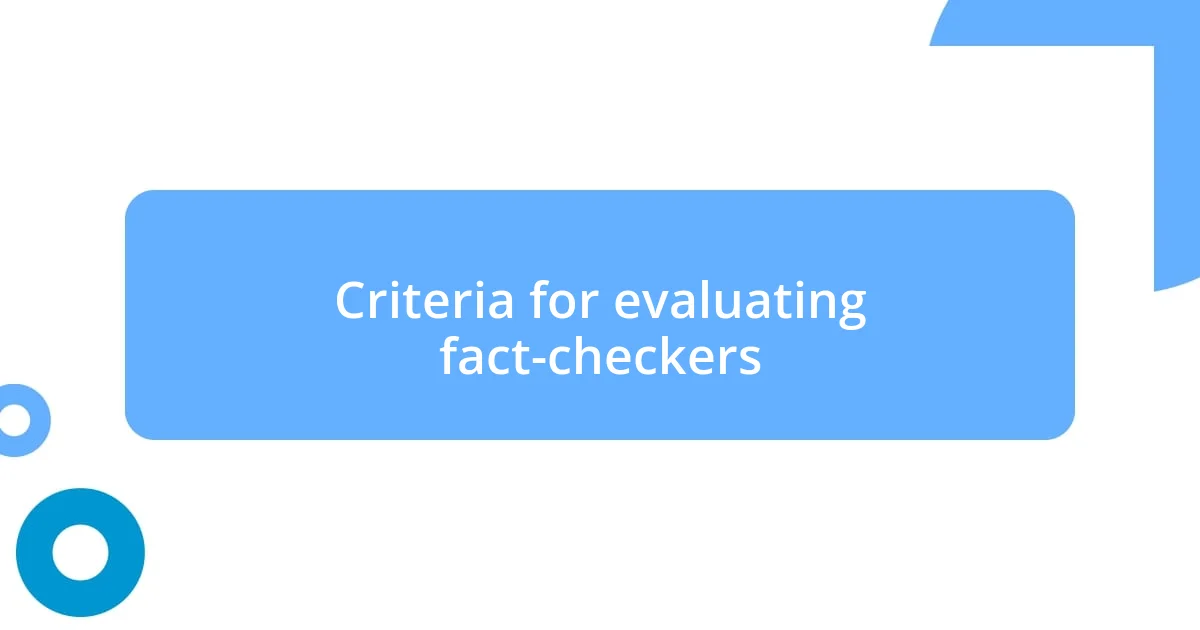
Criteria for evaluating fact-checkers
When evaluating fact-checkers, it’s important to consider a few key criteria that can help determine their reliability. My personal experience has taught me that looking into a fact-checker’s transparency is vital; I often prefer those who clearly document their sources and methodologies. It allows me to understand how they arrive at their conclusions, granting me peace of mind knowing their claims are backed by sound evidence.
Here’s a list of criteria I find essential when assessing fact-checkers:
- Transparency: Clear documentation of sources and methodologies enhances credibility.
- Expertise: Check for the background and qualifications of the fact-checkers involved.
- Bias Awareness: Evaluate if they acknowledge and mitigate potential biases in their work.
- Accuracy History: Look at their track record for past accuracy; consistent reliability builds trust.
- Peer Review Process: Fact-checkers that undergo peer review tend to uphold higher standards of accountability and accuracy.
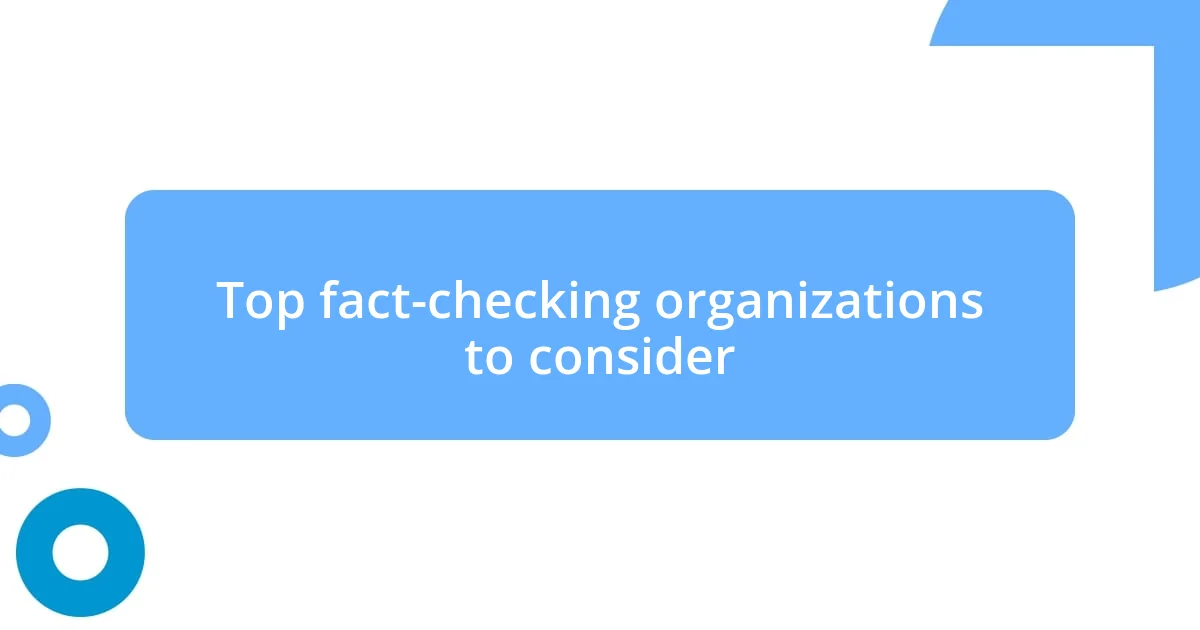
Top fact-checking organizations to consider
There are several reputable fact-checking organizations that I often turn to when I want to verify information. Organizations like Snopes and FactCheck.org have established themselves as reliable go-tos for clarity. I remember reading a bizarre claim on a trending topic one day, and just minutes into my research on Snopes, I found a thorough analysis that not only debunked the myth but also explained the origin of the rumor. This experience reinforced my trust in their meticulous approach.
Another organization that stands out in my mind is PolitiFact, especially because they rate the accuracy of statements from public figures. I once came across a bold statement made by a politician that seemed exaggerated. After consulting PolitiFact, I was relieved to see their detailed breakdown, which helped me understand the nuances of the claim. It was an eye-opening experience that illustrated how professional fact-checkers can help navigate the complexities of political discourse.
I find that independent organizations like the International Fact-Checking Network (IFCN) bring an added layer of credibility. Their commitment to a code of principles ensures that member fact-checkers uphold rigorous standards. I admire this global community of fact-checkers, as it reminds me that the pursuit of truth is a collaborative effort. Having diverse sources helps me feel more confident in the information I consume.
| Fact-Checking Organization | Specialization |
|---|---|
| Snopes | Misinformation and urban legends |
| FactCheck.org | Political claims |
| PolitiFact | Statements by politicians |
| International Fact-Checking Network (IFCN) | Global fact-checking collaboration |
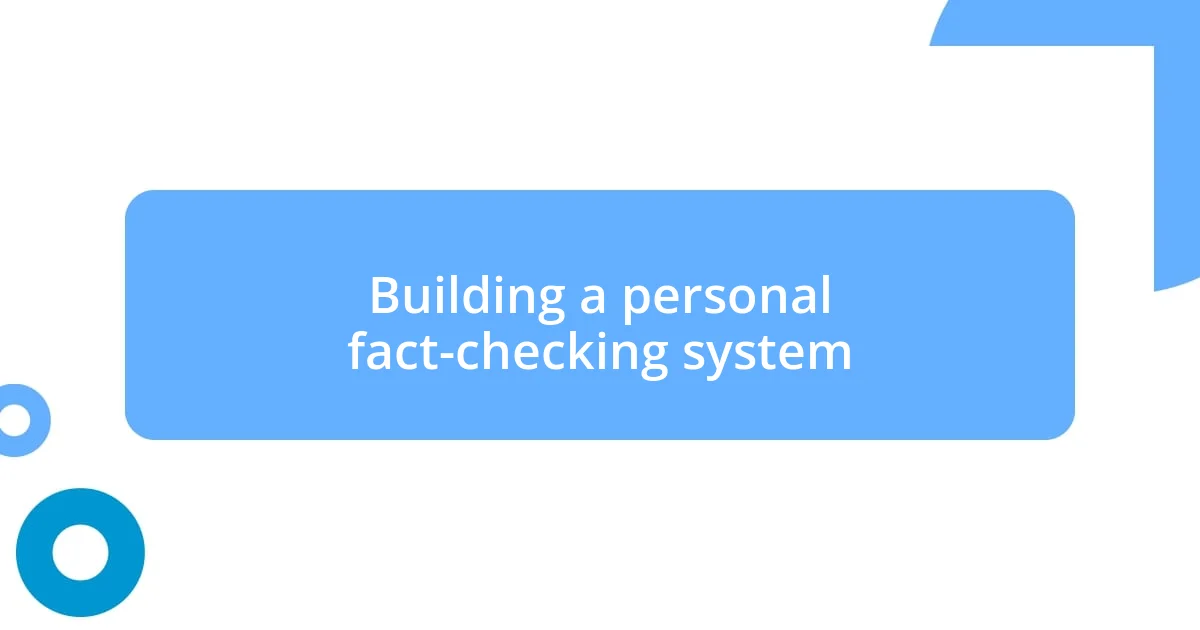
Building a personal fact-checking system
Building a personal fact-checking system is something I’ve crafted over time through a blend of tools and techniques. One practice I find invaluable is keeping a digital toolkit at my fingertips, filled with bookmarks of my favorite fact-checking websites and databases. Have you ever considered how quickly misinformation can spread? It’s like being in a race against time, and having these resources readily available gives me a sense of control.
I also make it a habit to engage with credible sources on social media platforms. Following experts and organizations that specialize in fact-checking keeps me informed in real-time. There was a moment when a viral post claimed a health miracle; the sheer emotion behind that claim—hope—was palpable. I remember diving into a Twitter thread where experts debunked the myth with compassion and clarity. It’s these interactions that remind me we’re not just checking facts; we’re also addressing the fears and hopes of our communities.
At times, I turn to community discussions, like forums or groups dedicated to critical thinking. It’s fascinating how sharing experiences amplifies our understanding of truth. I recall a time when I shared a dubious claim during a group chat, only to spark a lively discussion that ultimately led to fact-checking the claim together. This collaborative approach not only strengthens my fact-checking toolkit but also builds a supportive network of critical thinkers, reminding me that I’m not alone in the quest for accurate information.
